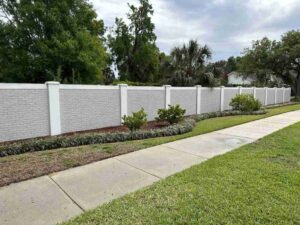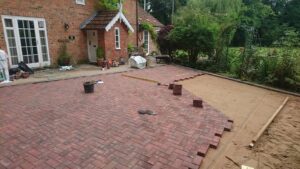Bricks are renowned for their durability, but even these strongest building blocks can be damaged. It is important to know the warning signs and get expert help from experienced masonry professionals before they turn into expensive repairs.
Are you noticing cracks, spalling, or other signs of damage in your brickwork? It’s time to restore its strength with expert services.
Best Masonry Contractor in Fort Pierce, FL
Phone: (772) 348-4353
Email: contact@fortpiercemasonrycontractors.com
1. Cracks in the Brickwork or Mortar
Visible cracks in the brick or mortar joints are the most common signs of brick deterioration. These cracks can form due to settling, weather exposure, or moisture infiltration. While minor cracks may seem harmless, they can expand over time and compromise the stability of your structure.
Types of Cracks:
- Vertical Cracks: Often caused by foundation settlement.
- Stair-Step Cracks: Typically indicate structural movement.
- Horizontal Cracks: Can be a sign of serious foundation issues.
If you notice any of these cracks, it’s crucial to consult an experienced local brick masonry contractor in Fort Pierce before the damage worsens.

2. Spalling or Flaking Bricks
Spalling occurs when the surface of bricks begins to flake, crumble, or break apart. It happens when moisture enters the bricks and freezes, which causes expansion that weakens the material. Over time, the affected bricks deteriorate, reducing the overall strength of the structure.
What Causes Spalling?
- Frequent exposure to rain and humidity
- Poor drainage around the foundation
- Use of low-quality or aged bricks
- Inadequate waterproofing
You can prolong the life of your brick structure by replacing spalling bricks and taking early action to address these problems.

3. Bowing or Bulging Brick Walls
Bowed or bulging bricks indicate that the wall has shifted due to internal pressure or moisture buildup. It is concerning as it suggests that the integrity of the wall is at risk.
Potential Causes:
- Water damage behind the bricks
- Weakening of the mortar joints
- Poor initial construction or installation
This issue should be addressed immediately by the skilled brick wall contractor to prevent collapse or severe structural damage.

4. Efflorescence (White Chalky Residue)
Efflorescence appears as a white, powdery deposit on brick surfaces. While it may seem like a cosmetic issue, it is often a sign of excessive moisture within the masonry. If left untreated, prolonged moisture exposure can weaken the mortar joints and lead to further damage.
How to Prevent Efflorescence:
- Ensure proper drainage around your home or building
- Seal bricks with a water-resistant coating
- Regularly inspect brickwork for moisture buildup
If efflorescence is persistent, it’s best to have your bricks inspected by Fort Pierce Masonry Contractor to determine the underlying cause.

5. Deteriorating or Missing Mortar
Mortar plays an essential role in holding bricks together and maintaining structural integrity. Over time, mortar joints erode due to weather exposure, age, and poor maintenance. When mortar deteriorates, it leaves bricks unsupported, making the structure vulnerable to damage.
How to Fix This Issue?
A professional tuckpointing or repointing service can restore the strength of your brickwork by replacing old, crumbling mortar with fresh, durable material. This process extends the life of your masonry and prevents costly repairs in the future.

Protect and Restore Your Masonry with Expertise
Fort Pierce Masonry Contractor provides expert installation and repair solutions customized to each client’s specific needs. From minor cracks to significant structural issues, the experienced team ensures every repair is completed with precision and long-term durability in mind.
Reach out today to get a free estimate!
Phone: (772) 348-4353
Email: contact@fortpiercemasonrycontractors.com
Frequently Asked Questions (FAQs)
- How do I know if my brick wall needs repair?
Look for cracks, loose bricks, spalling, bulging, or white powdery deposits (efflorescence). If you notice any of these issues, call (772) 348-4353 today for an inspection.
- Can I repair small cracks in my bricks myself?
While minor cracks can be patched temporarily, it’s best to have a professional ti assess the damage. DIY repairs often don’t address the underlying structural issue.
- How often should I inspect my brickwork?
A visual inspection should be done at least once a year. However, if your property is exposed to heavy rain or shifting soil, more frequent inspections may be necessary.
- How long does a brick repair job take?
The timeline depends on the extent of the damage. Minor repairs can take a few hours, while larger restoration projects may require a few days.
- Will repairing my brick structure improve my home’s value?
Yes! Well-maintained structures enhance curb appeal and increase property value. Proper repairs also prevent costly future damages.



